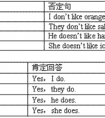Thanks ______ ______ me ______ my English. [ ]A. with, help, for B. for, help, for C. with, helping, with D. for, helping, with -七年级英语
give out发出,疲劳,分发,
give in (to sb.) 屈服
give up放弃,让(座位)
10. hand
hand in交上,提交
hand out分发
11.hold
hold on to…继续,坚持
hold up举起,使停顿
hold on别挂电话,等,坚持
12. keep
keep up with跟上
keep out 不使。。。进入
keep from克制,阻止
keep away from避开,不接近,
keep on继续,坚持下来
keep down 使。。。处于低水平
13.knock
knock at/on敲
knock into撞到某人身上
14. look
look up查找,向上看
look through翻阅,浏览
look after/ at / for 照顾/看/寻找
look out(for)当心
look about / around/round四下查看
look forward to盼望
15. make
make up编造,打扮,组成
make into / of / from 制成
16.pass
pass by经过
pass down(on)…to传给
17. pay
pay back还钱,报复
pay for付钱,因…得到报应
18. pick
pick up拾起,接人,站起,收听,
pick out挑选,辨认,看出
19. put
put up张贴,举起,
put out伸出,扑灭
put off推迟
put into放进,翻译
put away放好,存钱
put down记下,平息
put on穿戴,上映,
put aside放到一边
put back放回
20. stand
stand out 突显,引人注目
stand up 起立,站起来
38.其它常用词组
wake up 醒,唤醒,弄醒
stay up 不睡觉;熬夜
depend on依靠;取决于
worry about为。。。担忧
laugh at嘲笑。。。
begin with以。。。开始
mix up混合、搀和
major in 主修
grow up成长
open up 打开,张开;开发
end up到达或来到某处; 达到某状态
throw away 丢弃。。。
ask for要求。。。
wait for等待。。。
agree with同意。。。
find out(经研究或询问)获知某事
send out 发出,放出,射出
search for 搜索,搜查
chop down 砍到
have.. on 穿着。。。
step out of 跨步走出
drop out of 从。。。掉出
happen to 发生在。。。
belong to属于
arrive in /at到达。。。
try on试穿。。。
vote on对。。。进行投票
strech out伸展。。。
hang out闲逛
leave for离开前往
sell out 卖完、售完
show up 出席;露面
21. run
run after追逐,追捕
run away逃跑
run off跑掉,迅速离开
run out of用完
22. set
set up建立
set off 激起,引起
23. take
take after 与…相像
take off脱掉,起飞
take away拿走
take up从事,占用(时间空间)
take down记录,取下
take back收回
take pride in以… ……为自豪,
take the place of 代替
24. think
think of想起,考虑,对…看法
think out(自然)想出办法
think up想出(设计出、发明、编造)
think about考虑
think over仔细考虑
25. turn
turn off / on打开
turn to翻到,转向,求助
turn down调低,拒绝
turn back返回,转回去
turn round转过身来
turn up向上翻,出现,音量调大
26. care
care about 担心,关心;在乎,介意
care for 关心,关怀,照顾
27. clean
clean up 把…打扫干净,把…收拾整齐
clean out 清除;把…打扫干净
28.learn
learn about 获悉,得知,认识到
learn from 从/向。。。学习
29. fight
fight for..争取获得…
fight against 争取克服、战胜…
fight with…与。。。搏斗/战斗
30. dream
dream of梦想,想橡
dream about 梦到。。。
31. work
work for 为。。工作
work out 产生结果;发展;成功
32. argue
argue with …与。。。争论
argue about..争论。。。
33. complain
complain to 向。。抱怨
complain about抱怨。。。
34. hear
hear of 听说,得知
hear about听到。。。的事,听到。。的话
hear from接到。。。的信
35. talk
talk about 讨论。。。
talk with/to..和。。。讨论
36. live
live in 住在。。。
live on 以。。。为主食
考点名称:介词
- 介词:
是一种用来表示词与词、词与句之间的关系的虚词,在句中不能单独作句子成分。
介词后面一般有名词代词或相当于名词的其他词类,短语或从句作它的宾语。 - 介词的分类:
(1)表示时间,处所:从 自 自从 于 打 到 往 在 当 朝 向 顺着 沿着 随着
(2)表示方式:按 照 按照 依 依照 本着 经过 通过 根据 以 凭
(3)表示目的:为 为了 为着
(4)表示原因:因 由于 因为
(5)表示对象,范围:对 对于 把 向 跟 与 同 给 关于
(6)表示排除:除 除了 除去 除非
(7)表示被动:被 叫 让 给
(8)表示比较:比 和 同
上述介词中的“着,了,过”是语素,不是动态助词。 介词at, in, on的区别:
1. 表示时间,注意以下用法:
(1) 表示时间的某一点、某一时刻或年龄等用 at。如:
I get up at six in the morning. 我早上六点钟起床。
He got married at the age of 25. 他 25 岁结婚。
(2) 泛指一般意义的上午、下午或晚上以及月或年等较长的时间,一般用 in。如:
We watch TV in the evening. 我们晚上看电视。
He went to Japan in 1946. 他于 1946 去了日本。
(3) 若表示星期几或某一特定的日期,则用 on。如:
He left here on the fifth of May. 他于 5 月 5 日离开这儿。
2. 表示地点、场所、位置等,注意以下用法:
(1) 表示某一点位置,用 at。如:
We live at No 87 Beijing Road. 我们住在北京路 87 号。
The hospital is at the end of the street. 医院在这条街的尽头。
与名词所有格连用表示地点,也用 at。如:
at my sister’s 在我姐姐家 at the doctor’s 在医务室
(2) 表示空间或范围,用 in。如:
What’s in the box? 这盒子里有什么?
He lives in Paris with his wife. 他同他妻子住在巴黎。
但有时两者可换用。如:
The meeting was held at [in] the hotel. 会议在宾馆举行。
(3) at 与 in 的另一个区别是:at 用于指较小的地方,而 in 用于指较大的地方。如:
in Shanghai 在上海 at the station 在车站
但是,大与小是相对的,有时随着说话者的着眼点不同,大地方也可能用 at(比如把一个大地方看作一个点时)。如:
- 最新内容
- 相关内容
- 网友推荐
- 图文推荐
| [家长教育] 孩子为什么会和父母感情疏离? (2019-07-14) |
| [教师分享] 给远方姐姐的一封信 (2018-11-07) |
| [教师分享] 伸缩门 (2018-11-07) |
| [教师分享] 回家乡 (2018-11-07) |
| [教师分享] 是风味也是人间 (2018-11-07) |
| [教师分享] 一句格言的启示 (2018-11-07) |
| [教师分享] 无规矩不成方圆 (2018-11-07) |
| [教师分享] 第十届全国教育名家论坛有感(二) (2018-11-07) |
| [教师分享] 贪玩的小狗 (2018-11-07) |
| [教师分享] 未命名文章 (2018-11-07) |

![Which of the following can you probably see in the meeting room? [ ]A. B. C.D. -七年级英语](http://www.00-edu.com/d/file/ks/4/2/dongmingci/2020-01-08/small97361980a56115e1c9237567439904fe1578422951.jpg)

![—Can the boy finish_____ the book in about a week? —I think he can. [ ]A. read B. reading C. to read D. reads -八年级英语](http://www.00-edu.com/d/file/ks/4/2/dongmingci/2020-01-08/smallfa4d713075e249356362fe7392193a301578421751.png)


